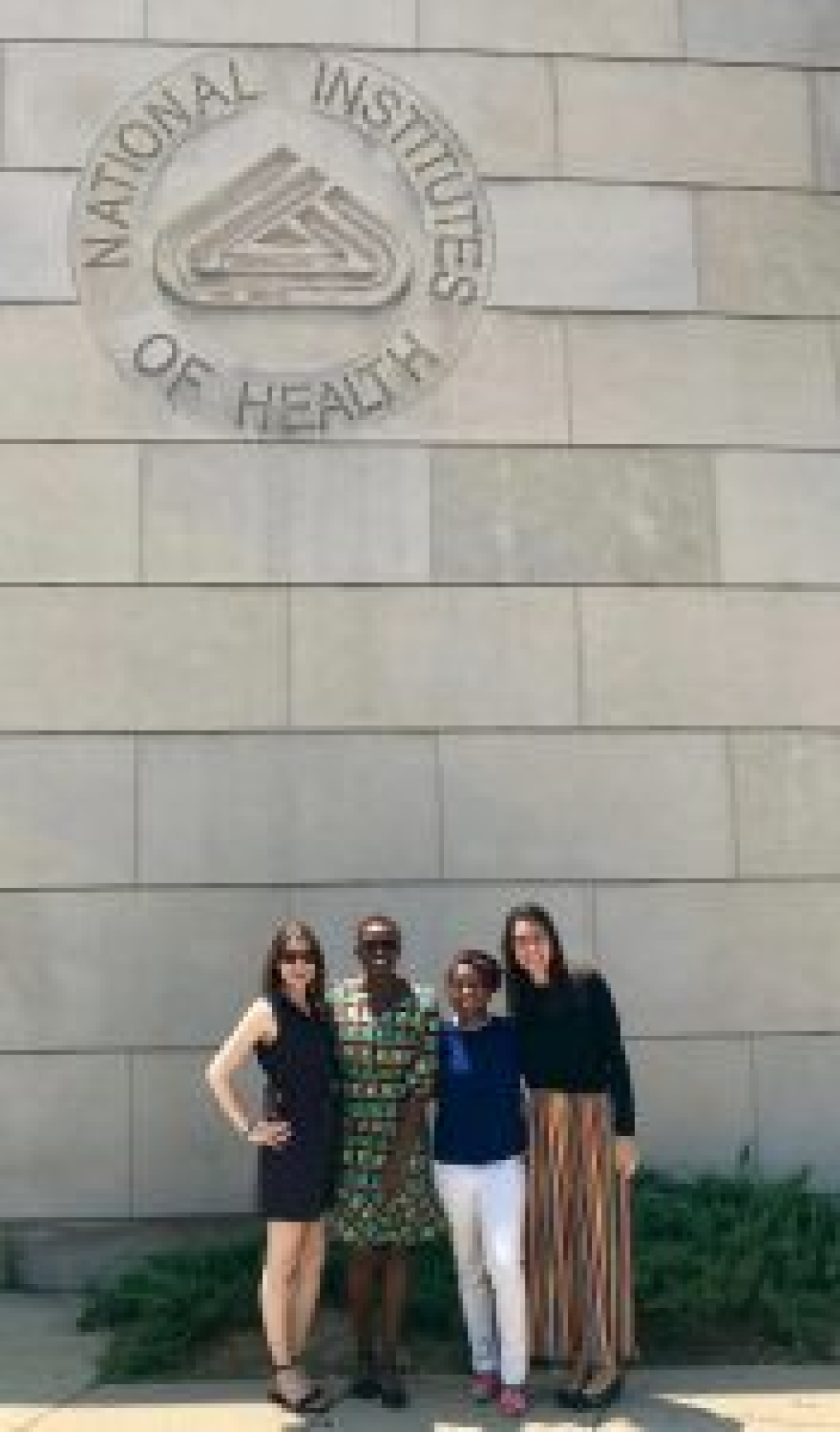Are you a prospective medical student wondering how you can incorporate global health into your medical school career? Are you a current medical student considering a research year or a dual degree? Or maybe you are one of my family members who wants to better understand why I am living in Uganda for a year? Here is a bit more information about how I decided to take a year away from medical school to pursue global health research.
Global and public health are the passions that brought me into medicine. My mother immigrated to the US from Venezuela, and I grew up hearing stories that compared her life in Venezuela to my life in the US. From a young age, I was acutely aware of my own privilege and of global health disparities. I expected that I would get a Master's in Public Health (MPH) during medical school, so much so that I applied to several dual degree MD/MPH programs in addition to MD programs.
My mentors came to Kampala and gave a talk on mentorship! Pictured are Dr. Kolars, Dr. Moyer, Catherine and Hilda.

During my clerkship year, I had two important realizations: (1) I absolutely love clinical medicine, and (2) I miss the global and public health roots that brought me into medicine. Armed with the knowledge that I made the right career choice, but also eager to learn about ways to diversify my future career and incorporate global and public health, I consulted multiple mentors. Pivotal insight came from a peer mentor, a fellow medical student, who had applied to multiple research fellowships as well as MPH programs for her gap year. It was invaluable to hear about her thought process, how she approached researching each program, and what she did to be successful in her applications. The University of Michigan Medical School invests in teaching medical students about mentorship and leadership, and my mentors were pivotal in helping me think through my gap year plans and successfully apply to a research fellowship.
In retrospect, I am glad that I did not have to decide about a dual degree during my first year of medical school. The experiences during my clerkships heavily influenced my thinking about the gap year. As I checked in with myself during the clerkships, I realized that I loved working again and learning on the job. I felt so much fulfillment from studying material that directly applied to my patients. I also realized that I struggled to focus during our three-hour lectures on Friday afternoons, and I didn't feel as much eagerness to return to the classroom just yet. Another important factor for me was, and is, cost. I only explored fully funded programs, including funded research years and MPH scholarships.
At the NIH in Bethesda, Maryland for the Fogarty Orientation!

Ultimately, I learned of the NIH Fogarty International Center global health research fellowship through my mentors. The fellowship is a 12-month global health research training program for post-doctorate and doctoral trainees in the health professions. It is awarded through the University of Michigan, which is part of the Northern Pacific Global Health (NPGH) Fogarty research fellow consortium that includes the Universities of Washington, Hawaii, Indiana and Minnesota. Respective projects range from researching the continuum of care for triple negative breast cancer to diagnostic algorithms for tuberculosis meningitis to community-based death investigation of childhood mortality. What excited me most about the Fogarty program is that it would allow me to genuinely delve into global health research, own my project from start to finish, get on-the-ground experience, and have the space to reflect on what I want my career path to look like going forward. During my research about the Fogarty program, I felt that the fellows and program directors strived to approach global health research in an ethical, collaborative and sustainable manner.
Mentor team meeting in Kampala with Dr. Cheryl Moyer, left, and Dr. Peter Waiswa, center.

In order to apply, I had to find a research mentor based at the University of Michigan as well as a local research mentor based in one of the consortium's partner countries. Next, I had to develop a project with my mentors, write a research proposal, and outline my previous experience in research and working abroad. I prioritized finding an excellent mentorship team because my prior research experiences taught me that mentorship can not only influence the success of the project, but also can define the extent of my personal growth and learning. Since I was in the midst of my core clerkships, I met potential mentors during the evenings and on my days off. I found that dedicating specific time and energy to networking with and identifying faculty who would be best positioned as well as willing to support me was an invaluable step of the application process. I am fortunate to have found a phenomenal research triad in Dr. Cheryl Moyer, Dr. Peter Waiswa and Dr. Joseph Kolars.
Many people asked me why I did not consider a two-month away rotation with a small research component instead. The short answer is I didn't feel that would adequately allow me to reach my goals. I preferred to seek an immersive experience where I could fully own a project, learn research skills while directly applying them to my project, and gain an intimate understanding for what it takes to conduct global health research. My journey to the Fogarty fellowship required me to reflect on what I want and how I learn best. I can confidently say I made the right decision. I am incredibly grateful to the University of Michigan Medical School and the Fogarty International Center for the opportunity to pursue my passions.
Stay tuned for another blog next year with updates about my research project!

University of Michigan Medical School
Want top health & research news weekly? Sign up for Health Lab’s newsletters today!





